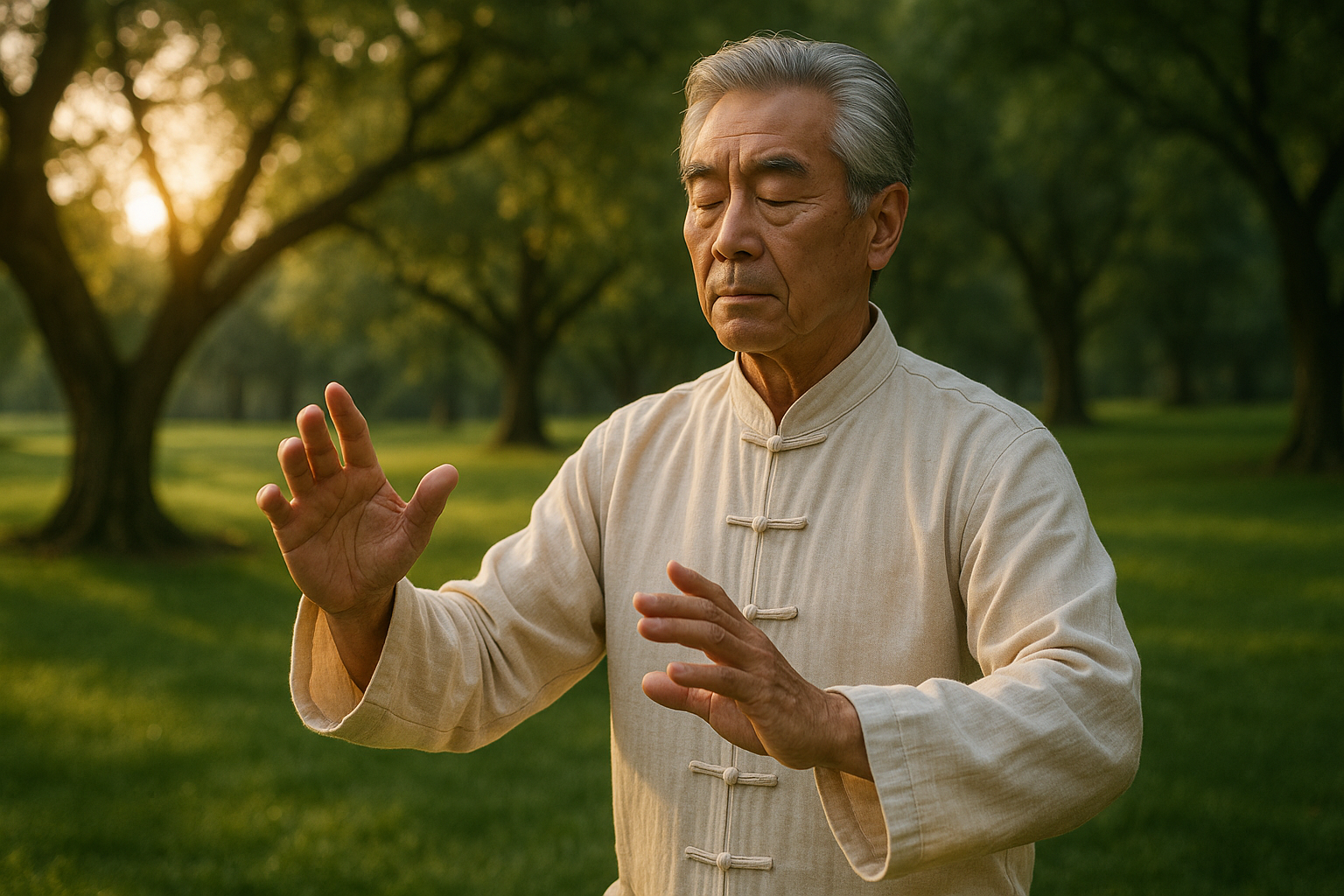Reaping the Benefits of Mindful Movement: The Art of Qigong
There's more to fitness and well-being than sweating it out in the gym or running endless miles. Enter Qigong, an ancient Chinese health practice that harmoniously blends mindful movement, meditation, and deep breathing. But is this millennia-old technique relevant in our modern, fast-paced world? Let's delve deep into the holistic health benefits of Qigong and discover why it's becoming a popular wellness strategy among health enthusiasts.

Qigong: A Glimpse into its Ancient Roots
Qigong, pronounced ‘chee-gong,’ is a centuries-old Chinese health and spiritual practice that translates to ‘life energy cultivation.’ Rooted in ancient Chinese philosophy and medicine, it was traditionally used to harmonize the body’s vital energy, or ‘Qi,’ promoting optimal health and spiritual enlightenment.
In the last few decades, Qigong has been gaining global popularity, with scientific studies validating its numerous health benefits. As we grapple with stress and disease in our fast-paced lives, Qigong offers a gentle, yet powerful, pathway to holistic health and wellness.
Qigong in the Wellness Spotlight: Current Trends and Research
Today, Qigong is a crucial component of Traditional Chinese Medicine and is practiced worldwide for its health-enhancing benefits. Several scientific studies back the therapeutic effects of Qigong, including stress reduction, improved cardiovascular health, enhanced immunity, and better mental health.
While it isn’t a magic bullet for health, Qigong’s holistic approach can complement conventional medical treatments and preventative care strategies. Its emphasis on mindful movement and breathing is particularly relevant in our stressful, sedentary lifestyles, offering a powerful tool to enhance physical health and emotional well-being.
The Science and Practice of Qigong: Benefits and Challenges
Qigong involves a series of slow, controlled movements combined with deep, rhythmic breathing and a meditative mind. The practice aims to cultivate and balance Qi, the vital life energy in our bodies.
Scientific studies have shown that regular Qigong practice can help reduce stress, improve balance and flexibility, enhance cardiovascular health, boost immune function, and improve mental health. Despite its numerous benefits, Qigong’s slow-paced, meditative nature may not appeal to everyone, especially those accustomed to high-intensity workouts. However, with patience and regular practice, most people find Qigong a refreshing and rewarding addition to their health regimen.
Interesting Insights into Qigong
-
Qigong is often referred to as ‘meditation in motion,’ highlighting its emphasis on mindful movement.
-
While Qigong movements may appear simple, they are designed to activate and balance the body’s energy meridians.
-
Qigong can be practiced by people of all ages and fitness levels, making it an accessible health strategy for everyone.
In summary, Qigong offers an interesting and beneficial alternative to traditional fitness methods. Its gentle, mindful movements, combined with deep breathing and a meditative mind, provide both physical and mental health benefits. While it may not replace conventional medical treatments, it’s an effective supplement to a holistic health and wellness strategy. As we continue to navigate the complexities of modern life, practices like Qigong can offer us a much-needed respite, helping us cultivate inner peace and optimal health.




